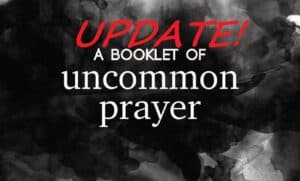
By Jim Baton
“Nobody knows my name.”
I remember my wife complaining about this to me after we’d already lived several years in Indonesia. Even friends and neighbors called her “Jim’s Wife,” “Evan’s Mom,” or “Alisha’s Mom.” I knew how she felt–many of the neighborhood kids called me “Uncle White Man.” My wife wondered wistfully, “Why is it they can’t just see me for me?”
She wasn’t alone. Several people in our neighborhood suffered the same identity ambiguity.
Every morning a man on a motorbike would come down our street selling fish, chicken and vegetables—we all called him “Uncle Vegetable.” One of the women at the far end of the street was heard screaming hysterically at her husband in public, and from that day on everyone called her “Auntie Temper Tantrum” (not to her face, of course).
The crossover between identification and identity can be confusing. Though we may be identified by our relationships, our profession, or even our worst moments, if we believe that identification is actually our identity, we could miss out on discovering who we really are. And if we see others only by their identifications, we’ll never get to know who they really are, either.
…if we see others only by their identifications, we’ll never get to know who they really are, either.
Jesus’ parable of the Prodigal Son illustrates this beautifully. A man had two sons. One took half of the estate as his early inheritance and squandered it in wild living. The other stayed home and dutifully took care of the farm. On the surface it seems like the story of the Bad Son and the Good Son.
But looking deeper we find that while these two boys were identified according to their behavior, neither one truly understood his identity. When the wild son returned home, he thought that his identity had been shaped by his worst moments, that he was now only worthy to be called a servant. His father, however, dressed him in the robe, ring and sandals of a son. Whether at his best or his worst, this was how his father–who knew his true identity–would always see him.
The older boy identified himself as the Good Son, based on his responsible work on the farm. But he refused to celebrate his brother’s return. His father had to explain to him, “Son, you are always with me, and all that I have is yours.” (Luke 15:31) If he’d truly understood his own identity as the beloved son of his father, he’d have enjoyed a lifestyle of celebration, including the party for his repentant brother.
In The Way of a Pilgrim, an unknown Russian ascetic writes, “The trouble is that we live far from ourselves and have little wish to get any nearer to ourselves. Indeed we are running away all the time to avoid coming face to face with our real selves.” (1998:79)
Many of us fear that God, others, or even we ourselves won’t like our real selves if they were to be known. So we run to an image we want to be identified with—good person, company man, fun guy, on-top-of-it mom, loyal friend, committed Christian—where others will affirm us without needing to truly know us. But our true identity is found in how Father God sees us. We can’t know who we are until we know whose we are.
…our true identity is found in how Father God sees us. We can’t know who we are until we know whose we are.
In Richard Rohr’s book Falling Upward, he writes about this sometimes scary process wherein we choose to no longer see ourselves according to how others identify us, or how we want to be identified (our image), so that we can discover who God made us to be. “We are created with an inner drive and necessity that sends all of us looking for our True Self, whether we know it or not. This journey is a spiral and never a straight line.” (2011:94)
The search for our True Selves must pass through this doorway of revelation—we are always with God (His love and presence are constant no matter what happens or what we do), and all He has is ours (we have no needs He hasn’t already provided for). There is a freedom in this revelation that bursts the constricting limitations of our self-images. Issues that once held us back—such as shame, timidity, self-righteousness, anxiety, judgmentalness, etc.—become powerless in His presence with us.
The apostle John understood this revelation. While other disciples were identified according to their occupation (Matthew the tax collector), their political affiliation (Simon the Zealot), or their character weaknesses (Thomas the doubter), John identified himself in several verses as “the disciple Jesus loved.” (See John 13:23 and others.) Surely Jesus loved all his disciples, but John is the only one we know of who claimed this belovedness as his personal identity.
Living as our True Selves, our fully-loved selves, also allows us to push past others’ images and identifications and begin to see them as their True Selves as well.
A few years ago we were introduced to a young Muslim man sleeping on a narrow wooden bench in a three-walled tin shack on the street, surrounded by old tires. Feeling abandoned by his parents, he worked for two years to save enough money to enroll in high school, trying to become the first child in his family of thirteen to graduate. We were told he had studied previously in a Muslim boarding school, run by extremists, who taught him that stealing from, raping or killing Christians was okay. We were also told he was an expert in martial arts.
Those words of identification should have warned us to keep a healthy distance from this kid! But when we first met him, the Lord whispered into my wife’s spirit, “This is a prince.” We felt God leading us to see a deeper identity in this young man, and we invited him to come live with us.
The first time he sat with us on the floor of our living room God opened a window for us to see into his soul. We had just finished explaining our expectations of him—that he would study hard, always be honest with us, and help a bit around the house–and we asked if he had any expectations or desires of us. His reply cut straight through our hearts: “I just want to be loved.”
Here was a young man seemingly defined by what he lacked (parents, education, home, love) and what he hated (Christians). He needed to come face to face with the Father’s love to find his True Self. God whispered again to my wife’s heart, “Don’t talk about religion with this boy; just love him.”
Within a few weeks a complete transformation occurred. He began joining our family devotions, helping us serve the poor children that visited us daily, and he fell in love with Jesus. It was almost as though he began to see himself wearing the robe, ring and sandals of a son. He went on to not only finish high school, but to graduate from university. He lives with an amazing confidence that together, he and God can do anything.
Richard Rohr writes about a similar point in his personal search for identity, “[when] I realized that many people loved and admired me for who I was not, and many people also resented or rejected me for who I was not. Conversely, many loved me for who I really was, warts and all, and this was the only love that ever redeemed me.” (2011:155-156)
The Father’s love is a redemptive love. He sees past the images we’ve cultivated to our True Selves, and loves us.
It’s no longer important to us that people know our names. What is important is that we know who we are. We know Whose we are. And we’re beginning to see the True Selves of those around us, too.
Jim Baton and his family have spent the last 20 years building bridges between Christians and Muslims in Indonesia. In his newest novel, A Way out of Hell, a Muslim ex-terrorist and his Christian adopted daughter try to non-violently take down an ISIS cell bent on destroying their city. Learn more about Jim at his website.


